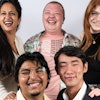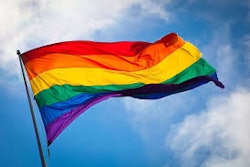In the wake of the shooting at the Pulse nightclub in Orlando, where gunman Omar Marteen took the lives of 49 early last Sunday morning, the higher education community is offering its support.
In a statement released by Howard University, President Wayne Frederick urged students to speak up and speak out against all hate. “Intolerance of one group is intolerance of all. Our students, some of whom identify as LGBTQ, must be able to feel safe in their space, be it inside or outside the classroom.”
Many victims of the Orlando shooting were college students. The need for all students to feel included on and off campus is a priority for many colleges and universities nationwide.
Dr. Robert T. Palmer, Associate Professor in the Department of Educational Leadership and Policy Studies at Howard University, said, “Historically Black colleges and universities (HBCUs) are actively acknowledging the need for safe spaces and inclusive climates for their LGBTQ students.” The support from higher education is a sign of progress but more work is needed. “As a researcher, all students need to be included, and HBCUs are working to ensure all students are welcome and supported,” Palmer added while participating at a recent vigil for Orlando victims in the DuPont Circle area of Washington, D.C.
Safe spaces for LGBTQ students are not as inclusive as they could be on college campuses since some do not account for students or faculty from different ethnic backgrounds and faiths, according to assistant professor of educational leadership and research at Florida Atlantic University, Dr. Cristobal Salinas Jr. “It is a critical time to advocate for our peers and our students across all backgrounds. When we talk about multiculturalism and social justice, that has to include Latinx, the Black community, those of Muslim faiths, and all marginalized groups within the LGBTQ community.”
Although LGBTQ spaces in higher education are largely available in recent years, critics cite the lack of support for LGBTQ students of color. “College campus faculty, administrators and staff need to be more inclusive beyond the communities they identify with. Research suggests the need for intersectionality to be accounted for when supporting LGBTQ students, and practitioners need to be more diligent about implementation,” said Salinas.
“Higher education professionals need to understand that there are LGBTQ students studying, living, and working on their campuses. We must do better in reaching out to our LGBTQ students and finding ways to support them. LGBTQ student organizations and safe space/ally programs are important, but we need to go beyond these basic minimums,” said California Lutheran University counselor education assistant professor Dr. Dan Tillapaugh.















